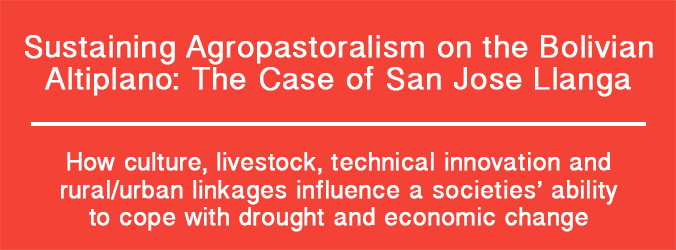
Files
Download Full Text (5.9 MB)
Description
To better understand today’s constraints and opportunities for improving small ruminant production systems on the Bolivian Altiplano, it is important to first consider the broader contexts of environment and social history. This chapter provides an introductory overview of secondary information concerning major ecological regions of Bolivia, constituent agroecosystems and how ecological regions are interrelated in terms of climate, geography, macro-economics and agricultural policy. Key aspects of cultural change and political history are also reviewed. These are important because present-day values and behaviours of Andean campesinos, as well as their use of agricultural technologies, have been profoundly shaped by forces including the indigenous Aymara culture, Incan occupation, Spanish colonialism, the initial Republican Period and contemporary policies of the Bolivian government.
Publication Date
2001
Recommended Citation
Jetté, Christian; Alzérreca Angelo, Humberto; and Coppock, D. Layne, "Chapter 02: National, Regional and Local Context" (2001). Sustaining Agropastoralism on the Bolivian Altiplano: The Case of San José Llanga. 9.
https://digitalcommons.usu.edu/sustaining_agropastoralism/9


